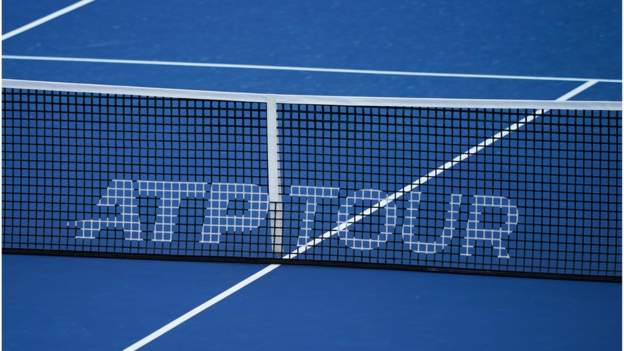
While quarantine in Melbourne has been capturing the headlines, players in Europe have become increasingly angry about the way self-isolation is being handled by the tennis authorities.
The ATP and the French Tennis Federation (FFT) are accused of "turning a blind eye" to quarantine directives in France, with players describing it as "immoral" and "unethical".
The story begins at the first ATP Challenger tournament of the year in Istanbul, a fortnight ago.
The day after the tournament got under way, players received a letter from the FFT which explained that anyone arriving in France from a country outside the European Union must now self-isolate for seven days.
Some players later received a phone call from the ATP to remind them of the rules.
The letter was very timely, as there was to be no exemption for elite athletes, and one of the two events on the schedule the following week was in the north-western French city of Quimper.
The French government's directive should have made it virtually impossible for anyone playing in Istanbul to compete in Quimper. At the very least for the five who reached the second round of the singles, and yet were still allowed to take their place in the draw in France.
Players, coaches and agents contacted by BBC Sport have spoken of their anger that members of the community may have been put at risk.
"I don't think it's the best look to be travelling throughout Europe with impunity and not abiding by the rules that governments put in place," one player said.
"If other governments caught wind of this, how are they to trust the ATP and the tournaments they put on?"
Some players are understood to have flown to Spain, as they felt it might be easier to cross into France from another EU country. One was even told a trip from the UK to France via Romania was an option worth considering.
Another source, who was sympathetic to the current challenges faced by the ATP, nonetheless felt they had handled it "horribly".
"While they were trying to help one professional, they were hurting another," he said, pointing out that players were effectively being asked to make an ethical decision.
Many abided by the new regulations - thus passing up the chance to make some money and vital ranking points. Seeing those who didn't play by the rules gain an unfair sporting advantage has caused a lot of frustration.
"The ATP have just absolved themselves of all guilt, and said it's not our job to enforce it. They've kind of turned a blind eye," was a common complaint.
In response, the ATP says it accepts the need for greater scrutiny, and is "making a concerted effort to address this to ensure that health and safety continues to be prioritised".
"National entry requirements relating to Covid-19 have been changing regularly, and often at very short notice. This represents an ongoing challenge for the global Tours, and we continue to remind players of their responsibility to adhere to local regulations," a spokesman told the BBC.
"Since the resumption of the Tours in August 2020, we have worked closely with local authorities and tournament organisers in order to ensure the safe operation of events. As a part of our processes, we continue to strive for clarity on any national entry rules, and the precise timing of new rules officially being in effect.
"To reflect the changing circumstances, the stringent health and safety measures implemented by the ATP across the Tours are continuously reviewed and updated. Following recent instances relating to player entry into the EU, we realise that greater scrutiny is required to determine player eligibility for events, as well as contingency planning to manage last-minute changes to immigration rules."
The French Federation, meanwhile, says it informed the WTA, the ATP and the ITF of the new quarantine regulations. It adds that in future it will only request travel permits from the Foreign Ministry on behalf of players who leave a "sufficient time between their arrival in France and the start of the tournament".
Plotting a path through Europe's Covid travel restrictions is particularly challenging for British players now the country has left the EU.
Andy Murray, who is back in full training after a positive Covid test denied him the opportunity to play in the Australian Open, has entered an ATP Challenger tournament in the Italian city of Biella in the middle of February.
But that will depend on an exemption being granted to players from outside the EU, who would otherwise have to spend 14 days in isolation. The rules are constantly evolving, and sometimes open to interpretation, making forward planning - for both players and the tours - a hazardous affair.
And at the same time, opportunities remain scarce for lower-ranked players. With some events unable to go ahead because of the pandemic, higher-ranked players have had to be creative with their own schedules.
As a result, very few players outside the world's top 200 have been able to gain direct entry into a Challenger tournament in the first three weeks of the new season.
Like so many others striving to earn a living in a pandemic, it is a struggle. And a far cry from Melbourne Park.















 Phone: (800) 737. 6040
Phone: (800) 737. 6040 Fax: (800) 825 5558
Fax: (800) 825 5558 Website:
Website:  Email:
Email: 






